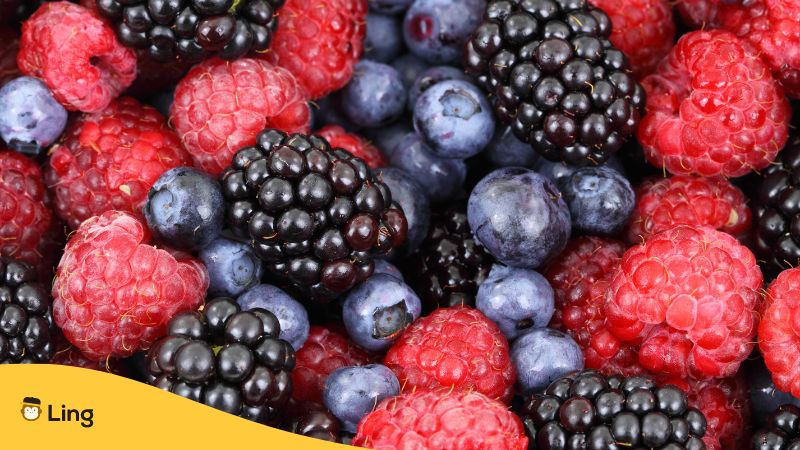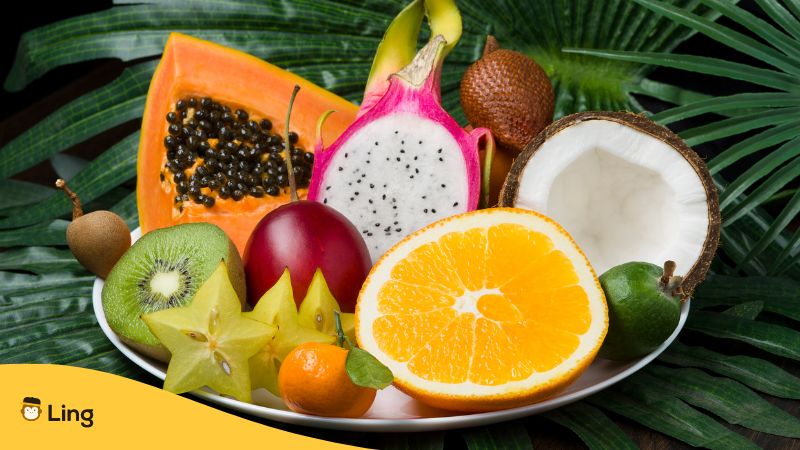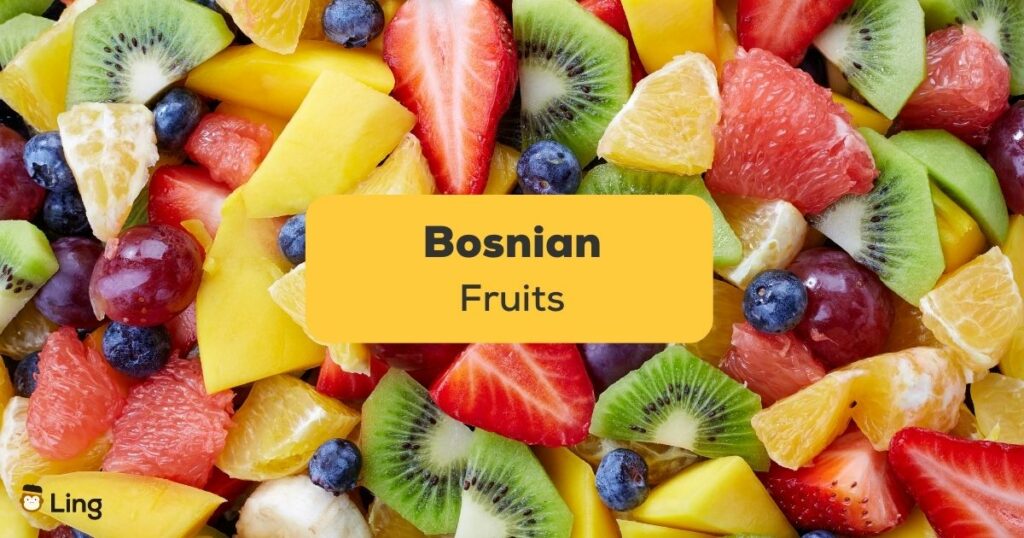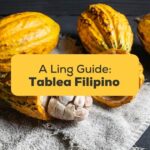Thinking about Bosnian fruit vocabulary? Then you’re on the right path! Venturing into a new language can often feel like navigating an unfamiliar landscape. However, one of the most enjoyable and practical ways to build your linguistic proficiency is to start with something we all love – food! And in the world of food, what could be more universal and healthful than fruits?
From my personal experience, not knowing the correct terms for fruits in Bosnian has led to quite a few interesting situations. I recall one incident that stands out vividly. I was visiting a bustling market in Sarajevo, the capital of Bosnia and Herzegovina, and I was trying to buy some fruits for a picnic.
I thought, “How hard could it be?” I have always prided myself on being good at non-verbal communication. However, the moment I tried to convey my request to the friendly yet non-English-speaking vendor, I knew I was in for a challenge.
I was trying to buy apples, or ‘Jabuka’ as I know it now, and oranges, known as ‘Narandža.’ As I pointed and gestured, we got into a game of fruit charades. The vendor, a kind elderly man, chuckled as he handed me bananas and pears while I was trying to mime an apple. The more I tried to describe an orange, the more exotic the fruit in my hand became.
It was quite a humorous scene, and a crowd had started to gather, offering their fruit suggestions. In the end, I walked away with an assortment of fruits, not exactly what I wanted, but an amusing mix nonetheless.
You don’t want to be in that tricky situation, right? If that’s the case, then keep reading below!
Bosnian Fruit Vocabulary
Ready to expand your vocab? This section will introduce you to a delightful assortment of fruit names in Bosnian, from the everyday staples like ‘Jabuka’ (Apple) and ‘Narandža’ (Orange) to the more exotic varieties like ‘Zmajsko Voće’ (Dragon Fruit). So, whether you’re planning a trip to Bosnia, trying to connect with Bosnian roots, or simply adding a new language to your repertoire, this fruity adventure promises to be a *fruitful* one! Let’s get started!

Berries In Bosnian
Ah, berries! These small, juicy fruits are not just delicious but also incredibly beneficial for health, packed with antioxidants and nutrients. Whether you are wandering the local Bosnian markets, browsing a menu, or simply having a chat about food, knowing the names of these popular berries in Bosnian can come in handy. So, let’s dive into some Bosnian berry vocabulary.
| English | Bosnian |
|---|---|
| Strawberry | Jagoda |
| Blueberry | Borovnica |
| Raspberry | Malina |
| Blackberry | Kupina |
| Cranberry | Brusnica |
| Cherry | Višnja |

Citrus Fruits In Bosnian
Citrus fruits, hailed for their tangy zest and health-enhancing properties, are universally adored. They’re a significant source of vitamin C and other nutrients. In Bosnian, just like in any other language, they have their distinctive names. Recognizing these names can be incredibly helpful, particularly when shopping for groceries or interpreting a menu in Bosnia. So, let’s discover the names of some common citrus fruits in Bosnian.
| English | Bosnian |
|---|---|
| Orange | Narandža |
| Lemon | Limun |
| Grapefruit | Grejpfrut |
| Lime | Limeta |
| Mandarin | Mandarina |
| Tangerine | Klementina |

Tropical Fruits In Bosnian
Tropical fruits, originating from warm and lush climates, are loved globally for their unique taste and rich nutrient content. In Bosnia, despite its temperate climate, these fruits are commonly found in markets and supermarkets, imported from warmer regions. If you’re someone who enjoys these exotic delights, knowing their names in Bosnian can be beneficial.
| English | Bosnian |
|---|---|
| Banana | Banana |
| Pineapple | Ananas |
| Mango | Mango |
| Coconut | Kokos |
| Papaya | Papaja |
| Guava | Guava |
| Kiwi | Kivi |
| Avocado | Avokado |
| Pomegranate | Nar |
| Fig | Smokva |
| Dates | Datule |
| Persimmon | Kaki |
| Passionfruit | Marakuja |
| Lychee | Liči |
| Dragonfruit | Pitaja |
| Durian | Durijan |
Basic Sentence Structure In Bosnian
Understanding the basic sentence structure is crucial when learning a new language. It helps to form sentences correctly and effectively convey meaning. To help you with this, here are some example sentences in the Bosnian language using the fruit vocabulary we’ve learned.
Subject + Verb + Object (SVO)
The Subject-Verb-Object (SVO) structure is a fundamental and universally prevalent sentence pattern, including in the Bosnian language. In this pattern, the subject performs an action (denoted by the verb), which is directed towards the object. It is a simple and effective way to convey basic ideas and information.
To illustrate this sentence structure and help you assimilate it, let’s use the fruit vocabulary we’ve acquired so far.
- Kruška je sočna. (The pear is juicy.)
- Borovnica je mala. (The blueberry is small.)
- Narandža je zdrava. (The orange is healthy.)
- Limun je kiseo. (The lemon is sour.)
- Smokva je slatka. (The fig is sweet.)
Subject + Verb + Object + Location (SVOL)
The Subject-Verb-Object-Location (SVOL) sentence structure in Bosnian, as in many other languages, provides an extended format of the basic SVO pattern. It adds a layer of detail by specifying the location where the action is taking place. This structure can be extremely helpful when you want to express where you or someone else is consuming a fruit or where a particular action involving a fruit is happening.
Let’s see how this works using the fruit vocabulary we’ve learned so far.
- Jem bananu u parku. (I eat a banana in the park.)
- On jede krušku u restoranu. (He eats a pear in the restaurant.)
- Djeca jedu jagode u vrtu. (The children eat strawberries in the garden.)
- Ona jede grejpfrut u kafiću. (She eats a grapefruit in the cafe.)
- Jedemo avokado na plaži. (We eat avocado on the beach.)
Possessive Sentences
Possessive sentences are integral to expressing ownership or belonging in a language. In Bosnian, these sentences are often structured as “Kome (to whom) + je + Šta (what)” to indicate who owns or possesses something. Being able to construct possessive sentences correctly is a valuable tool for any language learner, as it allows you to articulate personal connections to things or people.
By using the fruit vocabulary we’ve learned, we can create sentences that express ownership of these fruits.
- To je moja kruška. (That is my pear.)
- Ovo je njegov ananas. (This is his pineapple.)
- To su njene jagode. (Those are her strawberries.)
- Ovo je naša banana. (This is our banana.)
- To je tvoj avokado. (That is your avocado.)
And there we have our complete examples of sentences related to our topic! Although the whole concept may seem overwhelming at first, remember that practicing these words and structure we covered above will help reinforce your learning and fluency. Want to learn more? Then now is the best time to learn Bosnian with Ling!
Learn Bosnian With Ling
Are you eager to expand your Bosnian vocabulary beyond fruits and dive deeper into this rich and intricate language? If so, Ling could be your perfect companion! Ling offers an immersive language learning experience for Bosnian, among several other languages. The app focuses on teaching Bosnian in bite-sized lessons, making it perfect for both beginners and advanced learners. The flexibility it provides allows you to learn at your own pace, fitting effortlessly into your daily schedule.
One of Ling’s standout features is its comprehensive approach to language learning. It doesn’t only teach words and phrases; it goes beyond that, introducing learners to Bosnian grammar, pronunciation, and even cultural insights. Additionally, it covers a vast array of topics for vocab learning, from fruits to animals, from numbers to weather conditions, and much more! This holistic approach guarantees a well-rounded knowledge of Bosnian and 60+ other languages!
So what are you waiting for? Download Ling from the App Store or Play Store today to get started!



































































